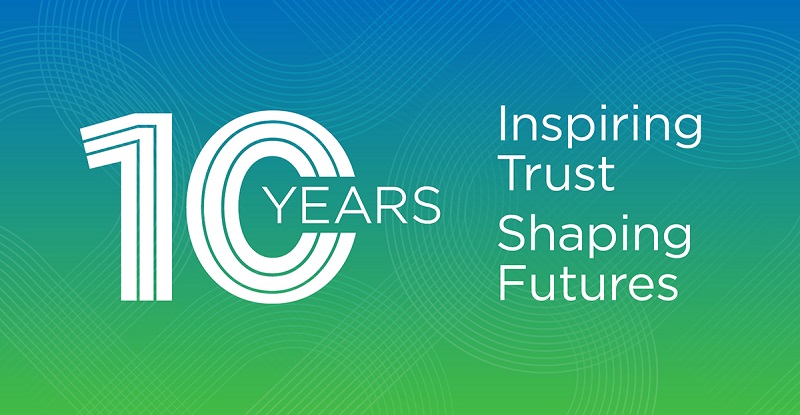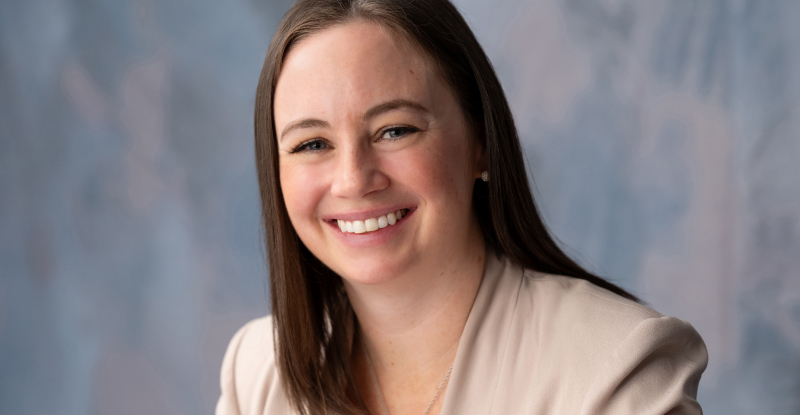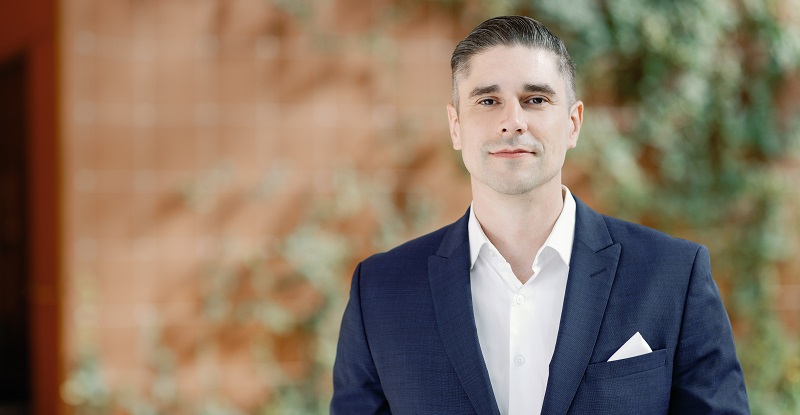
In this podcast episode, learn how a willingness to take a leap, along with hard work and perseverance have led Shamus Molloy, CPA, to a dynamic career that he loves as a manager at MNP. Part of our Coffee Chats with CPABC podcast series.
For Shamus Molloy, CPA, a fulfilling career has meant embracing significant changes. From attending culinary school to serving in the Canadian Armed Forces, and ultimately obtaining his CPA designation, Shamus’s journey demonstrates the diverse paths that can lead to becoming a Chartered Professional Accountant. Shamus, who is a manager at MNP in Nanaimo, recently took us through his journey so far, explaining how hard work, perseverance, and a willingness to take a leap have led him to a dynamic career that he loves.
Could you tell us a bit about your day-to-day at MNP?
Shamus: I recently changed paths to join the methodology team on a one-year secondment, so I’m currently split between three jobs, about 30% in client service, 35% methodology, and 35% assurance and innovation. The methodology side involves a mix of continuous learning to be up-to-date on standards and looking at best practices and how to implement them across the firm. The assurance and innovation role involves working with artificial intelligence and testing various AI initiatives and methods of improving workflows. Lastly, for my client service work, I have a number of clients that I wanted to maintain relationships with while on my secondment, and that involves the typical day-to-day responsibilities of a manager in public accounting.
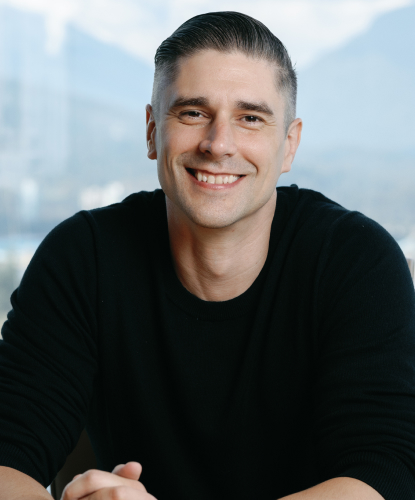
Rewinding to the start of your career, you attended culinary school. What drew you to that line of work?
Shamus: Since a young age I always had a passion for cooking, so it felt natural to pursue that when I entered the workforce. Working in the restaurant industry is fun when you’re young because you’re surrounded by like-minded people. I did that line of work from about age 16 to 23, first in Ladysmith, where I grew up, and then in Calgary, where I worked at a number of restaurants before deciding to attend culinary school at the Southern Alberta Institute of Technology. While that line of work can be a really good time, it’s also physically demanding and very hard on your body. Ultimately, it wasn’t something I wanted to do long-term, so I decided to make a change and join the armed forces.
Tell us about your experience with the armed forces?
Shamus: I enlisted as an armoured crewman out of Calgary – in that role, you’re responsible for operating and maintaining armoured fighting vehicles, their weapon systems, and their communication equipment. Before I was qualified to do that, I had to complete my basic training in Ontario at CFB Borden and then was moved to Gagetown, New Brunswick to attend the Royal Canadian Armoured Corps School for job-specific skills training. Afterwards, I was posted to Edmonton in the Lord Strathcona’s Horse regiment. I spent the rest of my career in the army there, ending my service as a corporal. At the time, the regiment had multiple tank squadrons and one reconnaissance squadron. I was part of the reconnaissance squadron and we would essentially do reconnaissance for the tanks and larger battle groups.
In your nine years in the armed forces, what were your core responsibilities?
Shamus: My responsibilities were always carried out as part of a crew, so teamwork was a big focus. Our squadron usually worked in a Coyote Armoured Vehicle and the crew had a driver, a gunner, a crew commander, and a GIB (guy in back). I spent a good chunk of my time as a driver and a small stint as a gunner. Then I moved to a troop that was more based on foot patrol. That was a lot more strenuous on the body because it involved more walking and carrying equipment and it impacted my decision to leave the army, because my body was under a lot of strain and injuries were piling up.
I did gain so many skills during that time. You have to learn how to live and work closely with a group of people that you don’t always get along with, so teamwork and leadership are huge. You’re typically in high-stress situations, so you learn a lot about yourself and how you handle pressure, as well as how to deal with others who are also under stress. There are also the technical skills – the driving, weapons handling, physical drills – all of that helps to teach discipline.
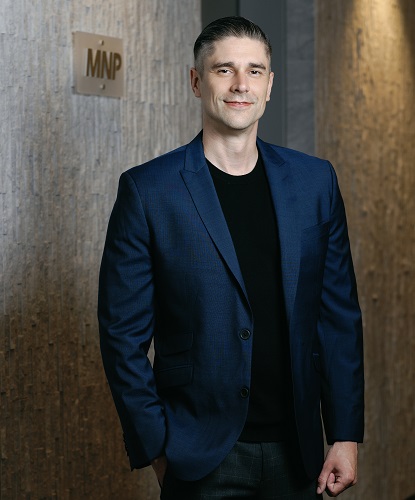
Are there any skills or abilities from your time in the army that you use a CPA?
Shamus: The drive and determination to get the job done, whatever it takes. I don’t really like to give up, sometimes to the detriment of my health. The determination and perseverance that were instilled in me in the army also carry over to making sure that the team succeeds before I worry about my own needs. My experience in the army translates to the CPA path because there is a lot of teamwork – every engagement you work on, you’re part of a bigger team.
What drew you to becoming a CPA?
Shamus: When I got out of the army, I wasn’t sure what my next career would be. I enrolled in the business program at The Northern Alberta Institute of Technology in Edmonton. In the first year, you can try different business courses, then decide which area you want to pursue. I did well in accounting, so I decided to pursue that.
I knew I wanted to move from Edmonton to Nanaimo, so after I wrote my final exam I packed up my house and moved. Once I was there, I got lucky and landed a job with R. Anderson and Associates Inc. in Port Alberni, and then with MNP in Nanaimo. I do love working with MNP – the firm is growing every day it seems, and there are plenty of different service lines that enable you to find new opportunities and areas of work that you enjoy, so you can essentially determine your own career based on your interests.
Is there an initiative you’re currently working on that’s particularly exciting?
Shamus: I don’t think there’s anything I do at work right now that isn’t impactful or exciting, especially working with AI. I collaborate with an amazing team to build out tools that have the potential to reshape how a lot of work is done at the firm. We’re in the relatively early stages of product development and we’ve been pushing the limits on what we can do. It seems like every day we’re coming up with new ideas and different ways we can approach processes and workflows. I’ve got a great deal of autonomy in this role, so I can get creative, think through different aspects of AI, learn about new breakthroughs, and determine some of the best ways to move ahead as the technology advances.
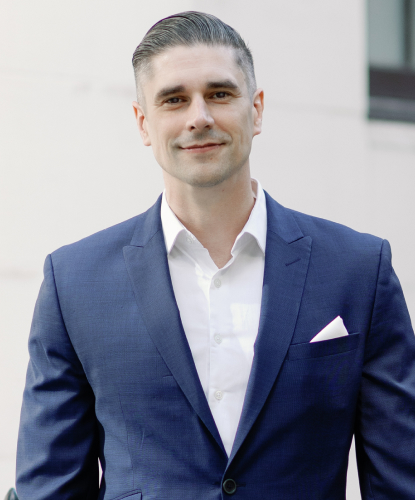
As a CPA working with AI, what skills do you draw on the most?
Shamus: The ability to look at a problem from multiple angles is one. I’ve always been someone who’s not very satisfied with the standard way of doing things. I like to ask, “Can we do it better? How would someone else think about this?” Another skill is resilience – trying and failing often. At first with AI, it was super difficult to get any results which was discouraging. But as I spent more time on it, failing repeatedly, things started to click. I began to see patterns and to understand what works and what doesn’t, and where some models fail and others thrive.
It’s a continuous learning process, so being able to adapt quickly is a good skill to have, but what excites me the most is pushing boundaries – seeing how far we can go to redefine what’s possible in the field of accounting. Combining technical curiosity with perseverance can lead to transformative results. I’m particularly passionate about the AI agents we’re creating that not only improve efficiency, but also enable us to provide better insights and services for our clients.
What advice would you give to people considering a career change?
Shamus: Don’t be afraid to take a leap. It’s incredibly easy to get stuck in a routine and just accept things how they are. If you find something that you want to try or a different career path that you want to take, go for it. From my experience, the worst part is in your head when you’re thinking, “What if this doesn’t work? What if I fail?” While it’s typically involved a lot of hard work, taking the leap has always led to significant improvements in my life. The big changes that I’ve feared, have often been the most rewarding.
All photos courtesy of Bobo Zhao Photography.
Leah Giesbrecht is a communications specialist at CPABC.
Shamus is also featured in the May/June 2025 issue of CPABC in Focus.

